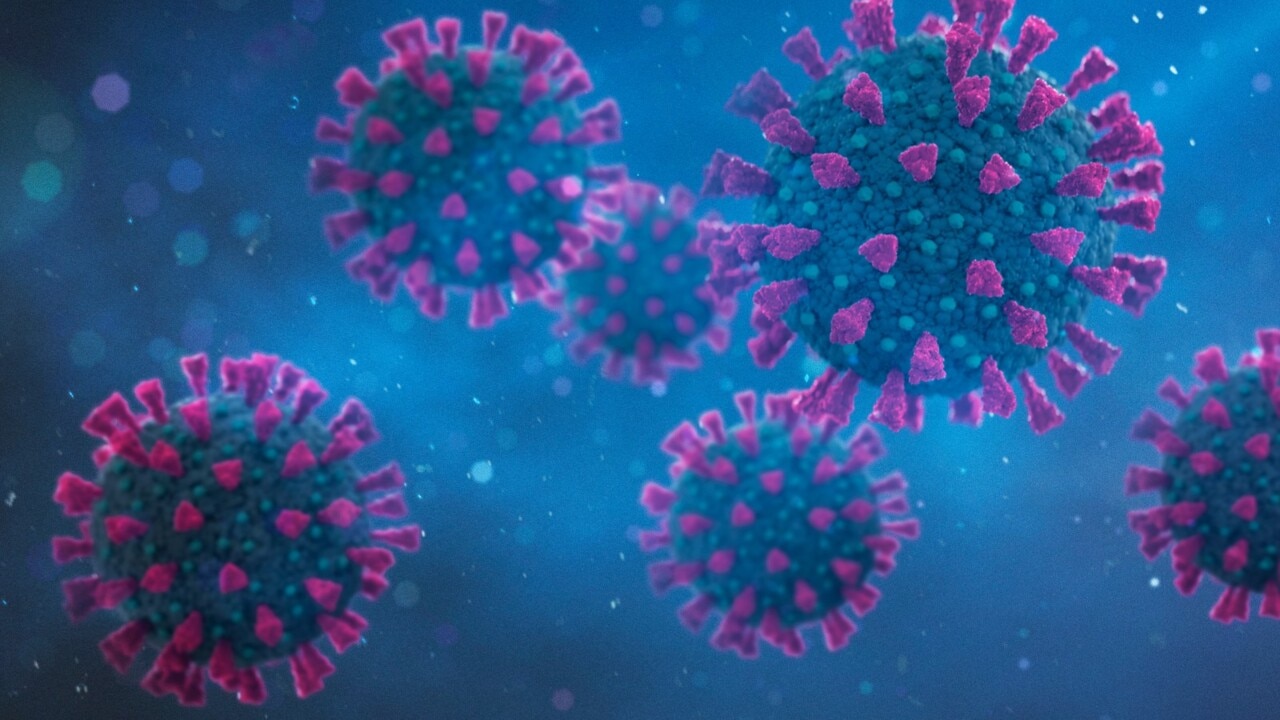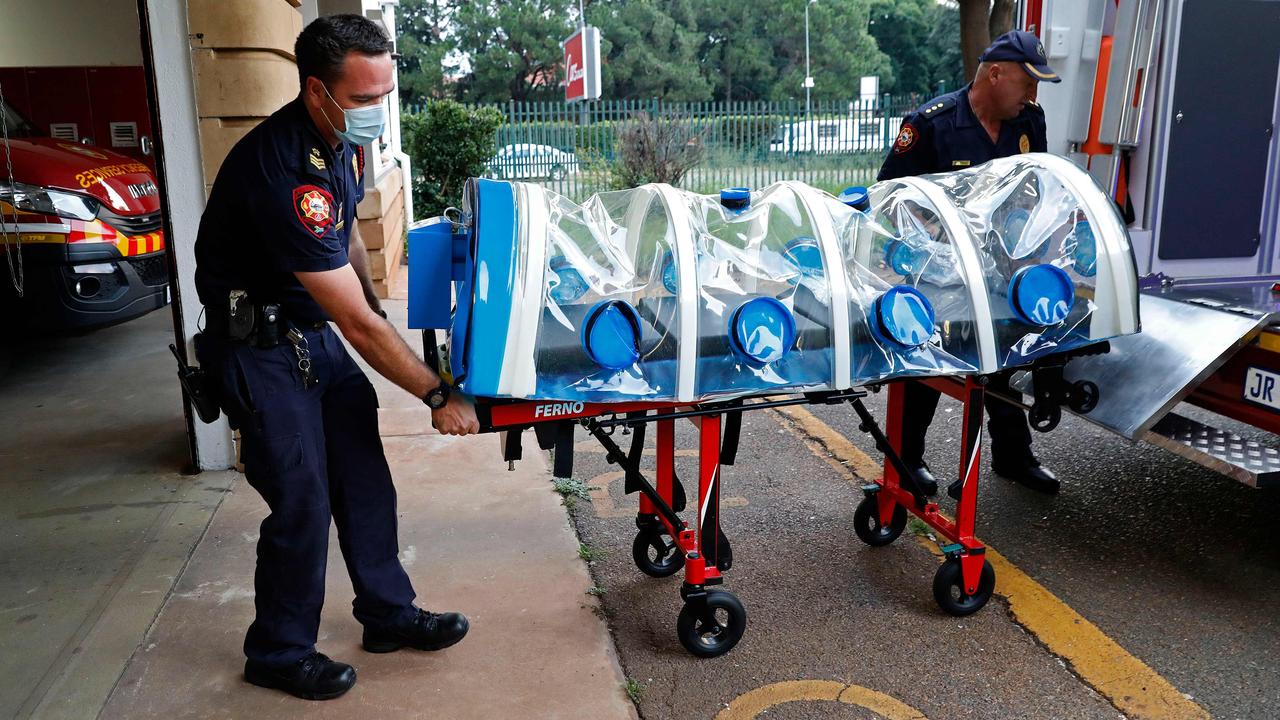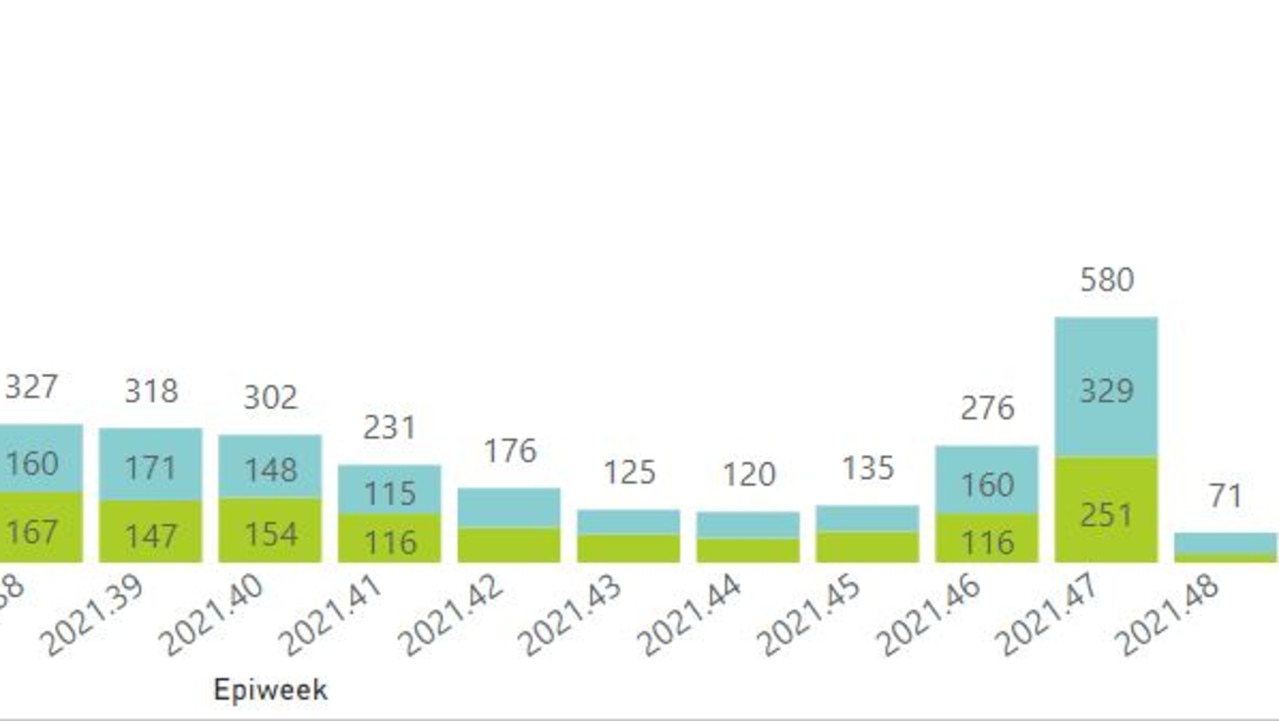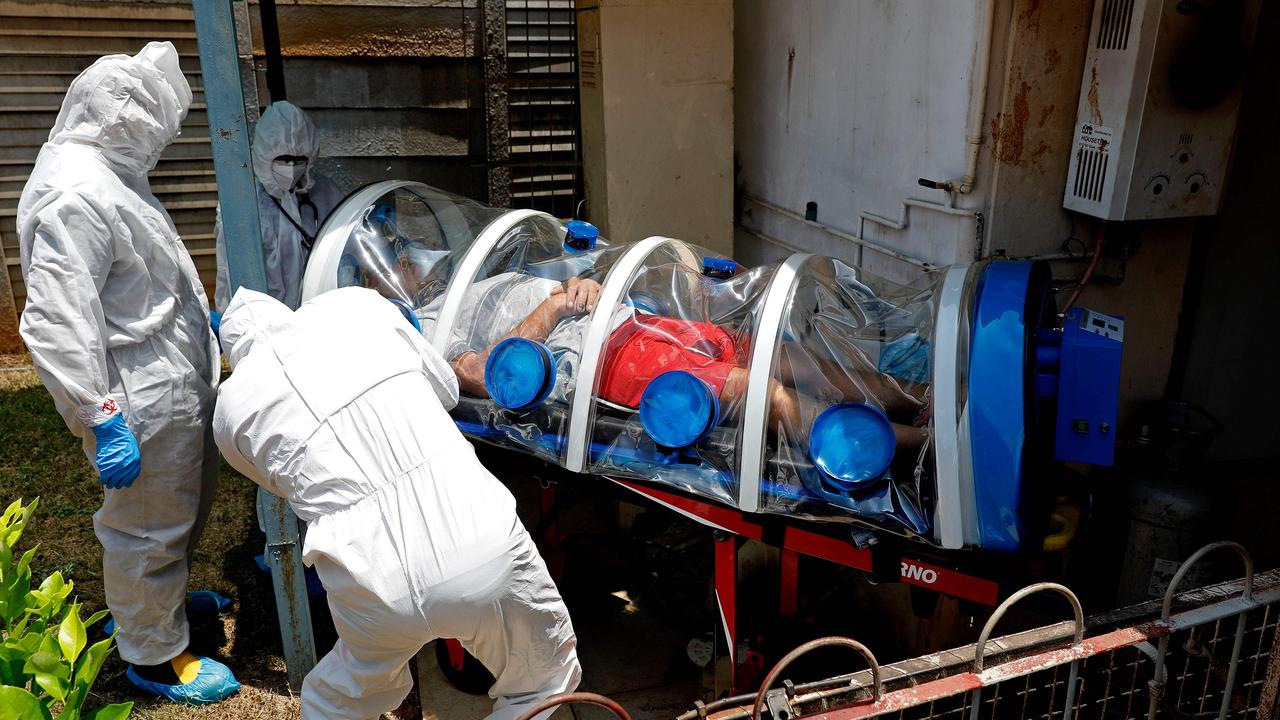South African epicentre of the Omicron variant shows increase in hospitalisations
Hospitalisations have skyrocketed at the epicentre of South Africa’s Covid outbreak – and experts say suggestions Omicron is ‘mild’ don’t stack up yet.

Figures emerging from the epicentre of South Africa’s Covid outbreak show a staggering rise in hospitalisations that indicate the new Omicron variant may not be as mild as hoped.
Covid cases in the City of Tshwane, a municipality that encompasses one of South Africa’s capitals Pretoria, in the Gauteng province, now account for more than half of the country’s infections.
Known for being a centre of academic excellence and home to a number of universities and foreign embassies, Tshwane has been thrown into turmoil by the emergence of the new Omicron variant.
The new strain was first detected in specimens collected in Gauteng on November 12 and it now dominates Covid infections in the area, accounting for about 76 per cent of genomically sequenced samples, although the numbers of samples are low.
Omicron now seems to have spread around the world and led to many countries closing their borders, including Australia. The World Health Organisation has declared it a variant of concern.
While much is still unknown about Omicron, it seems to be more infectious than the Delta strain, which may be due to a large number of mutations that could also make it harder to control with current vaccines.
There is hope though that the variant could induce a milder form of the disease, although this is yet to be proven.
Experts have cautioned about “misinformation” that Omicron is “mild”.
Respected United States epidemiologist Dr Eric Feigl-Ding said it was “nonsense” and the theory was based on an “out-of-context quote”.

South African doctor Angelique Coetzee, who first alerted authorities about a possible variant, told The Telegraph in the United Kingdom that many of the patients she had seen had mild symptoms.
However, what was not as widely reported is that she was talking about a specific group of young, healthy patients. In the same article she also voiced concern about more severe illness in older people.
Hospitalisations in Gauteng now appear to be on the rise.
Across the province, the number of hospital admissions increased by 330 per cent over two weeks from 135 cases in the week ending Saturday, November 13, to 580 cases last week, figures from South Africa’s National Institute for Communicable Diseases (NICD) show.

The total number of Covid cases also increased dramatically in Tshwane from 547 on Thursday, November 25, to 1204 cases on Monday, November 29, the Mayor Randall Williams said in a statement.
Tshwane’s cases made up more than half of the 2273 cases recorded across South Africa on Monday.
Dr Feigl-Ding said even if Omicron was milder than Delta, the fact that it spread easier or could evade vaccines would still make it more dangerous.
“Exponentially more cases is still exponentially more hospitalisation & deaths!” he tweeted.
Concerningly, children under the age of two years old made up about 10 per cent of hospital admissions in Tshwane, although this may be because parents were more likely to take babies to hospital just in case, Bloomberg reported.
“People are more likely to admit children as a precaution because if you treat them at home, something can go wrong – especially very young children because there is a higher proportion of death,” Dr Waasila Jassat from the NICD is quoted as saying.

According to The National, Dr Jassat said indications so far were that Omicron was not more severe than other strains.
She said most of the eight people who died in the two weeks from November 14 to 28 were aged 60 to 69 years old.
Only 1.5 per cent of the children younger than four died and there were no deaths among those aged between five and 19 years old.
“It doesn’t look at the moment like there is any increase in severity, but it is early,” she said.
It takes about two weeks for the rate of hospital admissions to reflect any increase in Covid cases and any rise in death rates will take even longer to emerge.
South Africa has very low vaccination rates with only 42 per cent of the population aged over 18 years old double dosed.






